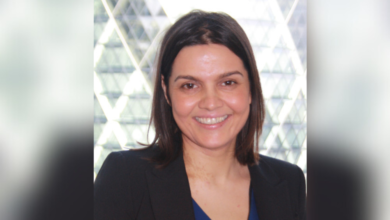Elon Musk’s Tesla Gets Break in Insurance Class Action Lawsuit

Elon Musk’s Tesla Gets Break in Insurance Class Action Lawsuit
Engine and Fleet
by
Tesla has been given more time to prepare its defense in a class-action lawsuit alleging insurance overcharges. Judge Michael Markman of Alameda Superior Court in Oakland ruled that the case, which alleges Tesla overcharged on insurance based on inaccurate warnings of accidents, will be reviewed for class-action status in October 2025.
A Tesla customer filed a lawsuit last year, representing drivers in 11 states, alleging that the company’s insurance premiums were unfairly raised because of “false” crash alerts rather than actual driving behavior. The complaint alleges that insurance policies Tesla sells directly to customers violate California’s unfair competition law and breach driver contracts.
At a recent hearing, Tesla attorney Min Kang explained the delay in gathering the information needed to build a defense, citing multiple states involved and the departure of a key employee. “We lost our key contact in the company last week,” Kang said, highlighting the complexities of the process.
Although Tesla has denied any wrongdoing, the company suffered setbacks last year and in June when it failed to dismiss several claims in the case. The lawsuit alleges that Tesla uses real-time driving data to determine insurance premiums, which are based on a “safety score” that includes metrics such as hard braking, hard cornering and forward collision warnings. Many drivers reported receiving unwarranted collision warnings, which negatively impacted their safety scores and, in turn, their insurance rates.
Tesla’s foray into the insurance market was a high-profile move by CEO Elon Musk. Initially launched in California, Tesla Insurance promised to offer premiums 30% lower than traditional insurers. The company claimed it could offer competitive rates by leveraging its deep understanding of its vehicles’ technology and safety features.
Tesla’s history with insurance began with the InsureMyTesla program in Australia and Hong Kong in 2016, which expanded to North America in 2017 through partnerships with Liberty Mutual and Aviva. However, that initiative didn’t meet Musk’s expectations, prompting the creation of Tesla Insurance in 2019. The program uses real-time driving data to provide personalized pricing, with the goal of providing a more compelling option for Tesla owners. The company recently reported that it had generated more than half a billion dollars in insurance premiums.
At the time, Warren Buffett, founder of insurance giant Berkshire Hathaway, told shareholders that he thought Tesla’s proposed insurance plan was a bad idea. “Automakers are probably as likely to succeed in the insurance business as insurance companies are to succeed in the car business,” he said. “I would bet against any automaker.”
In response to industry skepticism, Tesla’s move toward self-insurance has been met with mixed reactions. Critics have questioned the company’s ability to accurately price insurance, while others, like Ian Sweeney of Trove, have seen potential benefits in integrating insurance with Tesla’s technological advances.
“First of all, when Tesla first entered the industry, it wasn’t really taking the risk itself; it was just a distribution channel,” Adam Deininger, global industry head of insurance at Capgemini, told IPA.
“I’ve noticed for a long time that a lot of the tech companies that have come into the industry on the distribution side — offering new experiences for agents, new mechanisms for collecting data, and sometimes even doing the underwriting part as well — they’ve all had a similar experience. They’ve lost a lot of money.”
“They came in thinking that technology was the hard part, and they thought insurance was an old, slow, backward industry,” Denninger said.
“They thought it wasn’t that complicated, that they could solve the problem. But they realized that insurance is very complicated, and it’s hard to do without losing money. I think that’s what happened to Tesla.”
In an effort to address high insurance premium costs, Tesla recently hired Allen Labin, a former GEICO executive, as its head of insurance partnerships. Labin’s role focuses on working with insurance companies and collision shops to reduce the total cost of owning a Tesla.
Related Stories






Fetching comments…